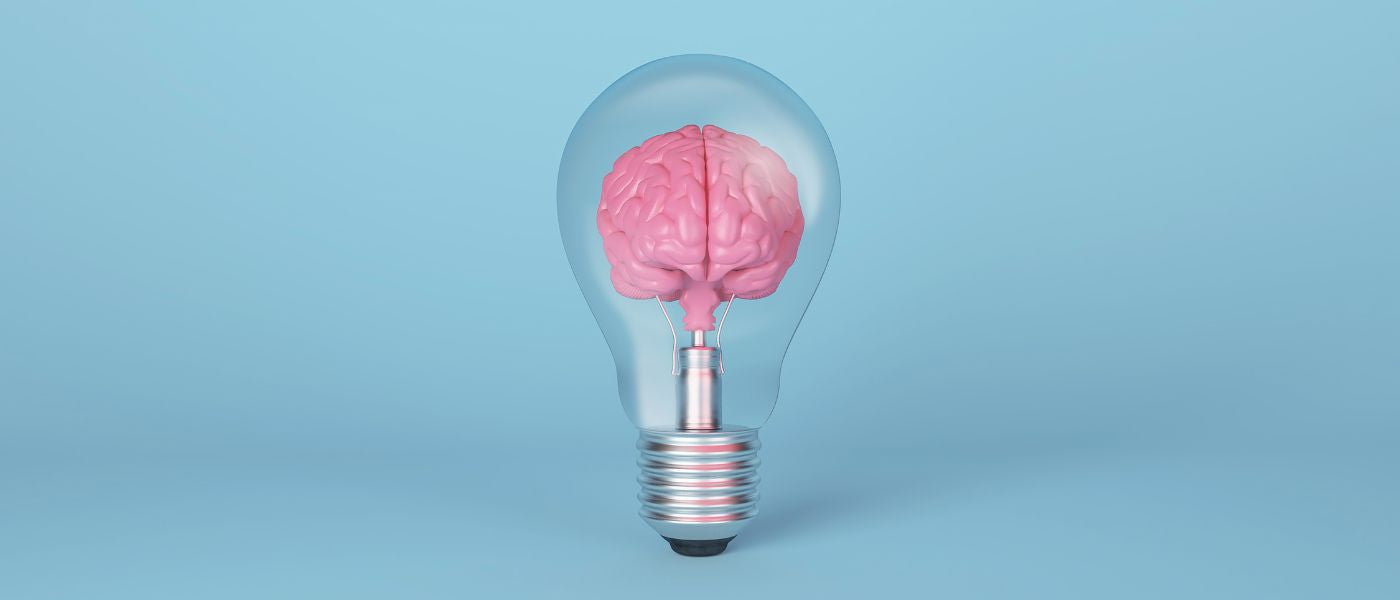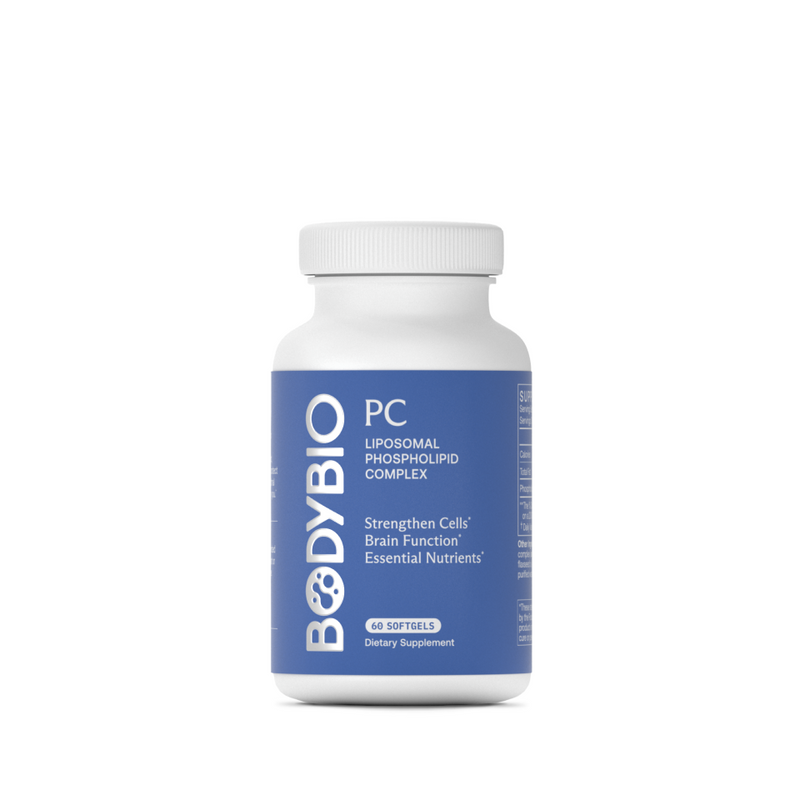What are Nootropics? A Comprehensive Guide to Cognitive Enhancers
Authors:

Dr. Thomas Wnorowski
PhD, CNCC Research Director, BodyBio & Biomedical Nutritionist
Key Takeaways:
Key Points:
- Nootropics are targeted remedies that increase cognitive function and fight brain fog. Some people have even found them useful to combat symptoms of ADHD, Alzheimer's, bipolar, and other neurological disorders.
- Unlike pharmaceuticals, nootropics work to restore nutrients and antioxidants to the brain, allowing better cognitive function through improved brain structure and neuronal function. Most of them have little to no side effects.
- A few of our favorite nootropic supplements include phosphatidylcholine (PC), N-acetyl L-cysteine (NAC), and creatine.
A hundred years ago, most day jobs consisted of physical labor, home chores, or craftsmanship — a careful balance of body and brain power.
Today, most of us are glued to a desk (not to mention a screen) for eight or more hours at a time.
We have some idea of the impact of a sedentary lifestyle on our bodies (i.e., increased rates of heart disease, back pain, and metabolic dysfunction).
But what about our brains?
With Attention Deficit Hyperactivity Disorder (ADHD), Alzheimer's disease, depression, and other brain-related illnesses on the rise, we need an intervention.
(And most of us can’t quit our day jobs for a quiet life of agriculture and homestead chores.)
That’s where compounds like nootropics come in. These are cognitive-enhancing supplements, formulas, and select pharmaceuticals that naturally “power up” our brains.
Their gentle power allows our minds to adapt to a much more cognitively demanding lifestyle.
Curious to learn more? The right nootropic (or nootropic “stack”) can help you…
- Boost mental energy and decrease brain fog
- Increase focus and limit distractions
- Create better work-life boundaries
- Problem solve with ease
- Hone your creative side
- Diminish risk for cognitive decline
If this sounds like something you need, let’s dive into the best nootropic supplements.
Table of Contents:
- What Are Nootropics?
- Benefits of Nootropics
- Do Nootropics Actually Work?
- Types of Nootropic Supplements
- The Best Nootropic Supplement? Phosphatidylcholine
What Are Nootropics?
Nootropics are substances that enhance memory, cognitive function, and concentration.
While today’s definition of “nootropics” includes a broad number of remedies, most people who reference them are talking about natural supplements (think: adaptogenic mushrooms, coffee, and vitamins like choline).
A nootropic supplement should…
- Boost brain cell communication
- Improve cognitive function and performance
- Boost creativity and problem-solving
- Increase concentration
- Protect brain cells and brain function
Let’s dive into the benefits of nootropics and some of our favorite supplement options.
Benefits of Nootropics
Nootropic supplements come with a lot of potential benefits. The best part is that they don’t typically have side effects or the emotional “highs” and “lows” that sometimes come with pharmaceutical drugs.
Energy
By gently balancing cortisol levels, some nootropics, like Ashwagandha, can help stabilize energy levels throughout the day. Rather than feeling energy “highs” and “lows,” ashwagandha helps your body adapt to the environment around you (no more reaching for that third cup of coffee or scheduling a mid-afternoon nap).
Memory
Brain fog and short-term memory loss are on the rise, which makes nootropics for memory all the more essential. Nootropics like essential fatty acids not only help boost memory now but also protect your brain for the future.
Focus
The ability to “multitask” is on almost every modern job application. But with so many things demanding our attention, chronic multitasking could actually hurt our cognitive function and on-the-job performance. Nootropics like N-acetyl cysteine (NAC) help us regain cognitive focus by strengthening neural pathways and balancing brain chemicals.
Concentration
Is real concentration a lost art? Not when you take nootropics. The amino acid L-Theanine gently works to calm the mind and increase focus, encouraging you to accomplish some deep work on your most important projects without feeling like you’re constantly fighting that monkey mind.
Do Nootropics Actually Work?
In short, yes! Even before their classification as true “nootropics,” holistic remedies like ashwagandha and ginkgo biloba were used in ancient Ayurvedic medicine for memory and cognitive enhancement.
Today, we study nootropic supplements for their positive impact on ADHD, dementia, Alzheimer's, depression, and other neurological disorders.
One study considers nootropics as an “effective and lower risk” solution for ADHD, especially in children and young adults. It found that the herb Rhodiola rosea effectively boosted dopamine and other neurotransmitters in the brain.
Natural Nootropics vs. Pharmaceutical Nootropics
When using the term “nootropics,” most people assume this means natural plant remedies or supplements. This is because the doctor who classified nootropics wanted to find naturally derived solutions with limited side effects.
However, some pharmaceutical medications may be classified as nootropics, depending on your view. Drugs that treat ADHD and Alzheimer's (like Adderall and donepezil) are good examples of pharmaceuticals that could be considered nootropics.
Types of Nootropic Supplements
Whether you’re a holistic health fanatic or an avid coffee drinker, it’s likely nootropics are already hiding in your diet. Let’s explore different types of nootropics and how you can use them to harness memory, concentration, and cognitive function.
1. Citicoline and Phosphatidylcholine
Citicoline is a famous nootropic that helps put a stop to memory loss, improve neurological dysfunction, and increase dopamine receptors in the brain. But how exactly does it work? Well, it’s a precursor to phosphatidylcholine — the nutrient doing the real heavy lifting.
Phosphatidylcholine (PC) is a lesser-known nootropic but gets directly to the heart of what its well-known partner, citicoline, is trying to do. In addition to the powerful benefits of citicoline, PC can also help improve cell membrane fluidity and cell signaling in the brain.
We recommend taking PC instead of citicoline, as it bypasses the multi-step metabolic process required to convert the nutrient into something your body can use.
2. Ginseng
A traditional herbal remedy, ginseng has been praised for its healing abilities all around the world. It’s a powerful antioxidant and adaptogen, meaning it helps our bodies find homeostasis even in the most stressful environments. Ginseng is the nootropic to take if you’re struggling with adrenal fatigue, brain fog, digestion issues, or lack of focus. It’s a natural mood booster and protects dopamine pathways in the brain.
3. Caffeine
Do you feel happier after your morning cup of coffee? This is because caffeine, as a nootropic, can boost neurotransmitters in the brain. We also love caffeine for its energy-inducing and cognitive-enhancing abilities (when used responsibly, of course!).
4. Omega-3 and Omega-6 Fatty Acids
Technically, only omega-3 is considered a nootropic. But if you haven’t guessed, we’re pretty opinionated about balancing omega 3 and omega 6 intake (both are essential fatty acids!). Since both nutrients compete for space in our cells, the wrong balance could do more harm than good.
So now that we’ve gotten that out of the way… omega-3 fatty acids are extremely helpful in protecting the brain against cognitive decline. They can reduce inflammation while increasing blood flow to the brain.
Remember, about 60% of the brain is made up of fat. And it’s not uncommon for neurological issues to stem from a lack of nutrients and structural resources in the brain. Consuming essential fatty acids is a great way to preserve your memory and safeguard your mental health while building a healthy neuronal infrastructure!
5. Creatine
Bodybuilders will be happy to know that creatine is doing more for them than just increasing muscle mass. It’s actually been shown to increase intelligence and critical thinking skills. As a nootropic, creatine can boost concentration and memory — meaning you’ll feel less distracted during gym reps and might remember your workout routines faster.
6. N-Acetyl L-Cysteine (NAC)
This nootropic supplement is particularly interesting for its ability to boost glutathione production in the body. Glutathione is commonly depleted in situations of chronic stress, chronic illness, and especially after mycotoxin exposure. Since glutathione is an antioxidant and regulates neurotransmitters, it’s a must-have for brain function and mental wellness.
As for NAC itself, it’s been used as an alternative intervention for a variety of neurological and neurodegenerative disorders. In one study, it was shown to cross the blood-brain barrier, thereby protecting brain mitochondria and fighting against neurodegenerative diseases.
The Best Nootropic Supplement? Phosphatidylcholine
We might be biased, but we’ve seen firsthand the impact phosphatidylcholine (PC) can have on the brain. Many customers report a clearing of brain fog with better attention spans and improved cognitive function almost immediately. Even better, phosphatidylcholine facilitates nutrient transport into the cell and trash removal out of the cell — meaning it offers a gentle cleanse and detox as well.
For people who struggle with toxin-related illnesses (as the root cause of their brain fog), phosphatidylcholine is a two-in-one solution.
Malík, M., & Tlustoš, P. (2022). Nootropics as Cognitive Enhancers: Types, Dosage and Side Effects of Smart Drugs. Nutrients, 14(16), 3367. https://doi.org/10.3390/nu14163367
Malík, M., & Tlustoš, P. (2023). Nootropic Herbs, Shrubs, and Trees as Potential Cognitive Enhancers. Plants (Basel, Switzerland), 12(6), 1364. https://doi.org/10.3390/plants12061364
Sharma, A., Gerbarg, P. L., & Brown, R. P. (2015). Non-Pharmacological Treatments for ADHD in Youth. Adolescent psychiatry (Hilversum, Netherlands), 5(2), 84–95. https://doi.org/10.2174/221067660502150430154937
Avgerinos, K. I., Spyrou, N., Bougioukas, K. I., & Kapogiannis, D. (2018). Effects of creatine supplementation on cognitive function of healthy individuals: A systematic review of randomized controlled trials. Experimental gerontology, 108, 166–173. https://doi.org/10.1016/j.exger.2018.04.013

